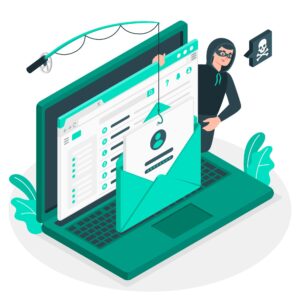A member of our family was recently “phished”. This is where they were rung, told that the person was from their bank, and informed that there had been some strange payments taken out of their account. They panicked and gave them the details of their account and very quickly thousands of dollars was removed from their account. However, their 14 year old had watched this scenario on TikTok and said “ring the bank”. She did and the bank sprang into action immediately.
They got their money back that afternoon. The bank caught the offenders.
I approached our bank at the ANZ and asked them for some advice on how to handle this sort of occurrence. It’s happening everywhere. Here’s what he sent me:
- Ensure you register for OnlineCode, which is our two‑factor authentication, so you have a second layer of protection when doing your banking online.
- The biggest is two factor authentication. (login requiring you enter a code sent to your mobile phone when logging into you banking via a computer)
- No bank should ever access or need this code and if they say they need it, it can be deemed a scam instantly.
- This is a growing way of accessing customers funds via their internet banking login details.
- Never download apps you’re not familiar with or give anyone remote access to your device.
- Some IT companies might ask for this, but from a banking side, we never ask for remote access. If this is request (even from an IT company etc, it should create a heightened level of caution as you are giving up control of your device).
- Check statements and call your bank immediately if you see anything suspicious.
- Too many people call saying they had failed to see small amounts being withdrawn from credit cards etc over a 6 month (or more) period. Ensure you review your accounts – even if a brief scroll through once a month to ensure you know where your money is going.
SPOT THE RED FLAGS
• Have you met the person you’re sending funds to?
• Have you been asked to download software to access your computer or mobile devices remotely?
• Have you been asked to receive and send funds on behalf of a third party?
• Have you received a phone call where a demand was made to send money?
• Are you being asked for an excessive amount of personal information, or information the caller should already know?
BE AWARE OF PHISHING
A common tactic used by fraudsters pretending to be from a bank or another reputable organisation, in an attempt to steal your personal information or gain access to your bank accounts.
Ways phishing attacks can occur:
- • Text message (sometimes called Smishing)
- • Phone calls.
Things to be wary of:
- • Being asked to click an attachment that downloads malware.
- • Being asked for your personal information such as security details, credit card details, password, PIN or security codes.
- • Being asked to click a link to access your internet banking.
- • Being asked to download software that allows remote access to your devices.
So thanks Logan McLardy at ANZ for this excellent advice.

Leave a Reply